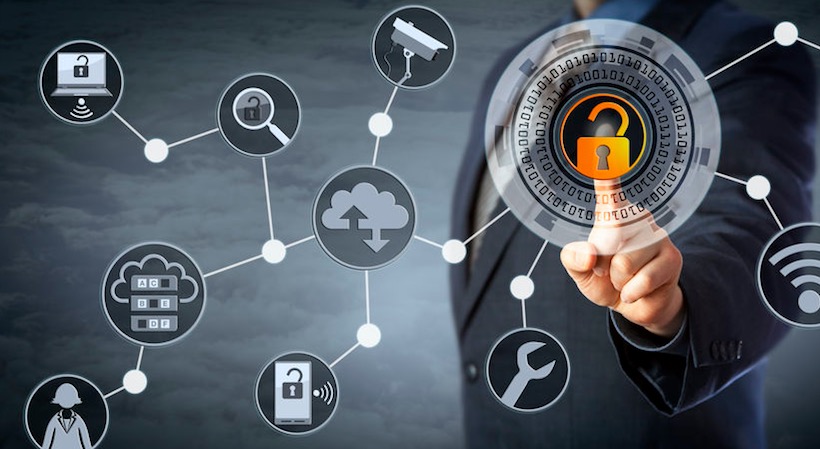Cybersecurity compliance is only becoming more important to conducting business as the modern world moves increasingly online, especially as consumers enjoy access to new internet-enabled conveniences like never before.
Consider how, today, we can buy movie tickets and schedule a ride to the theater all without talking to a single human being. These kinds of processes might have previously taken several minutes of effort to accomplish, whether in person or over the phone.
Technology has smoothed these processes out to require almost no extraneous information. Just your name, credit card number, and in this example, movie showtime and destination theater. By making these categories of information accessible to manipulation by digital systems and devices, activities that used to require hands-on involvement can now be conducted from a smartphone with ease.
But these conveniences are only effective to the point that they process information securely. Insecure processes leave data exposed and vulnerable to attack, and in 2020, it’s only a matter of time before vulnerable data sees illicit access. It’s not always easy to identify business processes that are secure or insecure — those standards are evolving constantly, and what is secure one month may be deemed insecure the next.
As consumers, we tend to blindly trust merchants to operate compliant payment infrastructure and otherwise run thoughtful IT that keeps our data safe online. As business owners, it’s up to us to maintain the relevant cybersecurity standards that apply to startups, regardless of industry.
The following are four strong best practices to implement right away for the sake of maintaining cybersecurity compliance:
Implement open lines of communication for all cybersecurity topics
Your team should have a conversational awareness of big-picture cybersecurity topics, as well as the sense to be putting some of those best practices into play. Even if someone’s job description sees them touch a computer only occasionally, they should still be putting their best network security foot forward.
Employees tend to value whatever they believe their superiors value. As a leader, it’s your job to speak about the value of compliance and strong cybersecurity. If it’s clear that you are focused on these objectives, then your employees will internalize these objectives, as well.
When cybersecurity and compliance become part of the conversation at work, it becomes part of the culture at work. Your employees will more easily connect the dots between their specific job duties, the role they play within compliance (whether big or small) and the value of maintaining those standards for best business outcomes.
Shine a spotlight on cybersecurity compliance so that all your employees understand its value. When employees are comfortable to ask questions about their objectives (like “why is compliance important?”), it demonstrates that they’re approaching those objectives mindfully.
5 Things Startups Need to Know About Cybersecurity
Make a point to hire compliance professionals
Large organizations, especially if they explicitly serve internet technology arenas, might have the budget for full-time cybersecurity staff. As a startup, you don’t have the luxury of a dedicated cybersecurity staff. However, that doesn’t mean you can’t work with a consultant.
Whether your business qualifies as high-tech or not, you may still be concerned with different kinds of cybersecurity compliance. For example, you have to uphold PCI (Payment Card Industry) compliance just to collect and process a credit card number online. You need to adhere to these cybersecurity standards, no matter the size of your business.
Schedule consistent audits
Proactive cybersecurity audits are a useful check against the unknown future. This means that it’s a good idea to check your own work, and to do so often. Keeping an eye out for any problems means that you get to find weaknesses and potential vulnerabilities before the bad guys do. It’s one thing to catch a security flaw during your own internal audit: you control the outcome, so your problem is solved, and your overall cybersecurity posture improves as a result.
Whether a problem is detected or not, it’s always good to be in tune with your operation and its cybersecurity needs.
It’s always better when you or someone on your team finds a bug, rather than when a malicious third party does. Your consultant can then fix these problems on sight, and they won’t use them as leverage to damage your company’s reputation or pocketbook, unlike a cybercriminal.
Sign Up: Receive the StartupNation newsletter!
Prioritize compliance briefings for the rest of your staff
Whether you decide to hire an external consultant to lead your cybersecurity compliance mission or rely on your in-house team, make sure you have a plan in place, and brief your entire staff.
If you choose to work with a consultant, his or her work is only useful to the extent that it contributes to the continued health of your overall company’s cybersecurity posture.
Our worlds grow more digital by the day, and cybersecurity in 2020 is no different. The increased move to internet-driven business processes means that we need to consider the associated cybersecurity standards that ultimately determine safe, secure results for our customers.
There’s no question of whether we’re moving more online or offline, only the question of how to provide safe transactions when the internet unlocks virtually unlimited possibilities for doing so.






